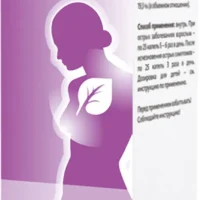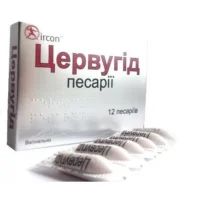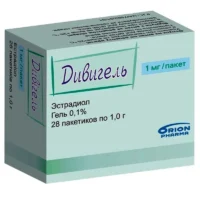Description
Luteina Vaginal Tablets 200 mg. №30 without Applicator
Ingredients:
- Each vaginal tablet contains 200 mg of Lutein.
Dosage:
- The recommended dosage is one tablet inserted into the vagina daily, preferably at bedtime.
Indications:
- Luteina vaginal tablets are indicated for the support of vaginal health and the relief of vaginal dryness.
Contraindications:
- Do not use Luteina vaginal tablets if you are allergic to any of the ingredients.
- Consult your healthcare provider before use if you are pregnant or breastfeeding.
Directions:
- Insert one tablet into the vagina daily using your finger or a suitable applicator.
- Wash hands before and after use.
Scientific Evidence:
Lutein, the active ingredient in Luteina vaginal tablets, is a carotenoid known for its antioxidant properties. Studies have shown that lutein plays a role in maintaining mucosal membrane health, including the vaginal epithelium. Research suggests that lutein supplementation may help alleviate symptoms of vaginal dryness and support overall vaginal health.
Additional Information:
It is important to note that individual results may vary, and it may take some time to experience the full benefits of Luteina vaginal tablets. If symptoms persist or worsen, discontinue use and consult your healthcare provider. Store the tablets in a cool, dry place away from direct sunlight.
For more information on the pharmacological effects of lutein and its role in vaginal health, consult with your healthcare provider or pharmacist. Clinical trials evaluating the efficacy of lutein in vaginal health may provide further insights into the benefits of Luteina vaginal tablets.





